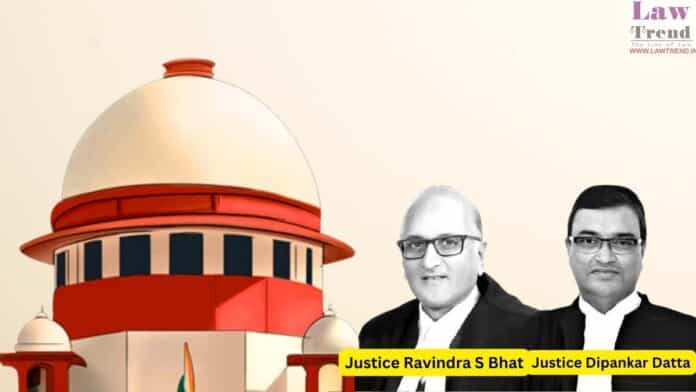Unsatiated greed for wealth has facilitated corruption to develop like cancer and the constitutional courts owe a duty to the people of the country to show zero tolerance to corruption and come down heavily against the perpetrators of the crime, the Supreme Court has said.
The top court said corruption is a prominent hurdle in achieving “preambular promise” of the Constitution to secure social justice to the people of India by striving to achieve equal distribution of wealth.
A bench of Justices S Ravindra Bhat and Dipankar Datta made the observations while setting aside an order of the Chhattisgarh High Court which had quashed the FIR registered against the state’s former principal secretary Aman Singh and his wife for allegedly amassing disproportionate assets.

“Though it is the preambular promise of the Constitution to secure social justice to the people of India by striving to achieve equal distribution of wealth, it is yet a distant dream. If not the main, one of the more prominent hurdles for achieving progress in this field is undoubtedly ‘corruption’.
“Corruption is a malaise, the presence of which is all pervading in every walk of life. It is not now limited to the spheres of activities of governance; regrettably, responsible citizens say it has become a way of one’s life,” the bench said.
The top court said it is a matter of disgrace for the entire community that there a steady decline in pursuing the lofty ideals which the founding fathers of our Constitution had in mind and degradation of moral values in society is rapidly on the rise.
“Not much debate is required to trace the root of corruption. ‘Greed’, regarded in Hinduism as one of the seven sins, has been overpowering in its impact. In fact, unsatiated greed for wealth has facilitated corruption to develop like cancer.
“If the corrupt succeed in duping the law enforcers, their success erodes even the fear of getting caught. They tend to bask under a hubris that rules and regulations are for humbler mortals and not them. To get caught, for them, is a sin,” it said.
Noting that outbreak of scams is commonly noticed, the bench said what is more distressing is the investigations or inquiries that follow.
“More often than not, these are botched and assume the proportion of bigger scams than the scams themselves. However, should this state of affairs be allowed to continue? Tracking down corrupt public servants and punishing them appropriately is the mandate of the Prevention of Corruption Act.
“We the people, with the adoption of our Constitution, had expected very high standards from people occupying positions of trust and responsibility in line with the Constitutional ethos and values. Regrettably, that has not been possible because, inter alia, a small section of individuals inducted in public service for serving the public’ appear to have kept private interest above anything else and, in the process, amassed wealth not proportionate to their known sources of income at the cost of the nation.
The apex court said although an appropriate legislation is in place to prevent the cancer of corruption from growing and developing, where for maximum punishment by way of imprisonment for ten years is stipulated, curbing it in adequate measure, much less eradicating it, is not only elusive but unthinkable in present times.
“Since there exists no magic wand as in fairy tales, a swish of which could wipe out greed, the Constitutional Courts owe a duty to the people of the nation to show zero tolerance to corruption and come down heavily against the perpetrators of the crime while at the same time saving those innocent public servants, who unfortunately get entangled by men of dubious conduct acting from behind the screen with ulterior motives and/or to achieve vested interests.
“The task, no doubt, is onerous but every effort ought to be made to achieve it by sifting the grain from the chaff. We leave the discussion here with the fervent hope of better times in future,” it said.
The apex court said law of the land abhors any public servant to intentionally enrich himself illicitly during the tenure of his service.
“Increase in the assets of such a public servant tantamount to constitutionally impermissible conduct and such conduct is liable to be put under the scanner of the Prevention of Corruption Act,” it said.
The Chhattisgarh High Court had earlier quashed the FIR registered against Singh and his wife for allegedly amassing disproportionate assets observing that the registration of the case was the “abuse” of the process of law and that the allegations were prima facie based upon probabilities.
The case was registered in February 2020 against the Singhs under sections of the Prevention of Corruption Act, 1988 and 120 (B) (criminal conspiracy) of the Indian Penal Code based on a complaint lodged by Uchit Sharma.
Sharma, who claims himself to be an RTI activist, is based in Raipur.







